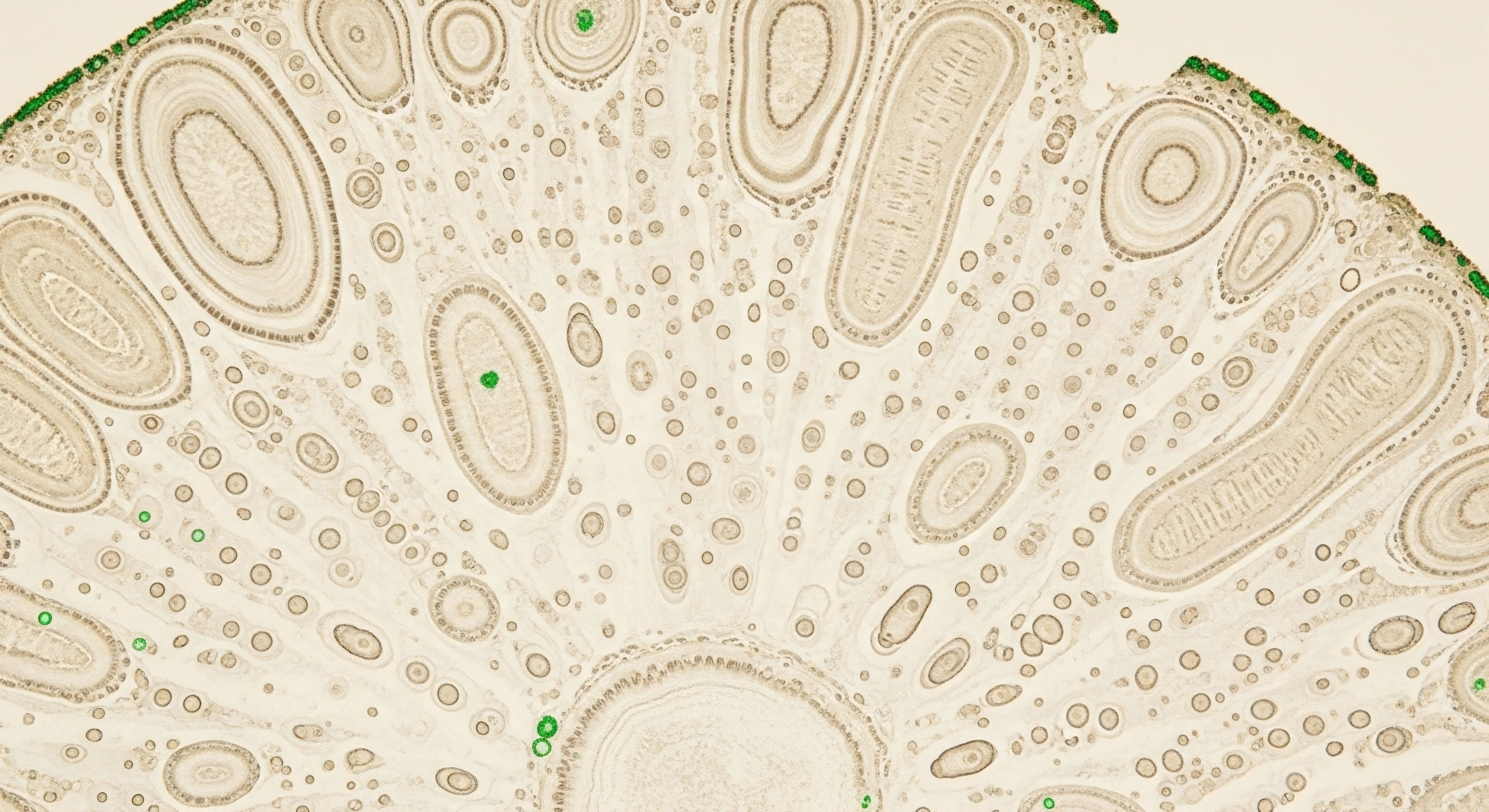

The Biological Mandate for Cognitive Command
The assertion that testosterone functions solely as a reproductive or physical performance modulator is a simplification that disregards fundamental neuroendocrinology. Testosterone acts as a critical cognitive effector, establishing the baseline for mental horsepower and executive function in the male physiology. This hormone is not merely accessory to cognition; it is integral to the brain’s foundational operational status.

The Architecture of Drive State
Motivation, the internal combustion driving action, is profoundly linked to androgen status. When levels decline below optimal ranges, the experience is a tangible reduction in proactive engagement with complex tasks. This reduction manifests as inertia, a dampening of the will to initiate high-effort cognitive processes. We observe that endogenous testosterone in aging men correlates with lower performance on measures of verbal fluency and attention, indicating a direct influence on information throughput speed.

Mood Regulation as Cognitive Support
A functional mind requires a stable emotional substrate. Testosterone directly influences mood stabilization circuits. For men presenting with low T and concurrent depressive symptomatology, restoring physiological levels yields measurable positive shifts in subjective well-being and irritability profiles. This is a system-level effect; correcting the hormonal deficiency removes a significant impediment to clear thought and sustained focus.
TRT effectively improved Beck Depression Inventory scores in hypogonadal men after 8 months, showing significant reduction in depressive symptoms, supporting improved mood and reduced irritability.

Targeted Restoration of Mental Capacity
The evidence points to a specific clinical window. In populations where cognitive impairment is already present alongside low testosterone, therapeutic intervention demonstrates a capacity to reverse some deficits. This suggests testosterone acts as a neuroprotective and restorative agent when the system is already compromised. The objective is not simply maintenance; it is the targeted restoration of lost processing capacity through precise endocrine adjustment.


Signaling Pathways Governing Mental Output
The mechanism by which testosterone exerts its nootropic influence is rooted in its interaction with specific neural tissues. Testosterone is lipophilic, allowing it to readily cross the blood-brain barrier and engage androgen receptors (ARs) distributed throughout key cognitive centers. This interaction modulates synaptic function and influences the milieu of essential neurotransmitters that dictate moment-to-moment mental performance.

Androgen Receptor Distribution
Specific brain regions exhibit high concentrations of ARs, making them primary targets for androgen signaling. The hippocampus, central to memory consolidation, and the prefrontal cortex, the seat of executive control and planning, show significant androgen receptor density. Activation within these zones promotes neuroplasticity and the efficiency of signal transmission. The process involves direct genomic effects, altering the transcription of proteins necessary for neuronal health and communication.

Molecular Support for Neuronal Integrity
At the molecular level, optimized testosterone supports the physical resilience of the neural network. Research indicates that testosterone administration may positively affect several processes implicated in age-related cognitive decline. These mechanisms involve reducing the destructive cascade of neuronal apoptosis, speeding up the repair rate of damaged neural structures, and mitigating cellular damage from oxidative stressors.
The influence extends to pathological markers relevant to neurodegeneration, with evidence suggesting testosterone can reduce levels of the detrimental beta-amyloid peptide. This positions optimized androgen status as a preventative biochemical shield, a necessary component for maintaining structural integrity under the persistent load of metabolic activity.
The primary functional connections are summarized below:
- Androgen Receptor Binding in Prefrontal Cortex
- Modulation of Dopaminergic and Serotonergic Systems
- Support for Hippocampal Neurogenesis and Plasticity
- Reduction of Inflammatory Cytokines in CNS Tissue
Testosterone has been found to delay neuronal apoptosis, accelerate the rate of nerve regeneration, modulate neuronal damage caused by oxidative stress, and reduce beta amyloid peptide levels.


Timeline for Neurochemical Recalibration
Understanding the expected temporal response is key to integrating this knowledge into a performance protocol. The onset of cognitive enhancement is not instantaneous; it is contingent upon achieving a sustained, supra-physiological (or optimized physiological) milieu that allows for cellular adaptation. Protocols must be respected for their necessary duration to elicit these deep-seated neurochemical shifts.

Initial State Dictates Response Velocity
Men presenting with clinical hypogonadism and significant cognitive impairment often report quicker, more noticeable mental improvements compared to eugonadal individuals seeking marginal gains. The removal of a significant endocrine deficit creates a more pronounced positive response gradient. Mood stabilization, for instance, is frequently reported within the first few months of consistent therapy.

Sustaining Cognitive Gains
For improvements in more complex domains like spatial cognition or working memory, the timeline extends. While some studies in younger, hypogonadal men showed improvements within weeks or months, long-term replacement studies in healthy older men show variable results, underscoring the importance of baseline status. The goal is the establishment of a new, stable operating point where the brain operates with the full signaling support it requires for peak performance across all domains.
This recalibration is a phased process:
- Phase One ∞ Symptom Mitigation (Weeks 1-8) ∞ Reduction in irritability and general fatigue.
- Phase Two ∞ Functional Uptick (Months 2-6) ∞ Measurable gains in verbal fluency and sustained attention.
- Phase Three ∞ System Stabilization (Months 6+) ∞ Establishment of the new baseline for executive control and long-term neuronal resilience.

Sovereignty over Your Own Operating System
Viewing testosterone as a nootropic reframes its application from mere hormone replacement to proactive cognitive engineering. It moves the conversation beyond the antiquated concerns of virility and squarely into the realm of superior mental performance and longevity. Your capacity for complex thought, your emotional stability under pressure, and your sheer will to execute are bio-chemical outputs, not abstract virtues.
They are subject to optimization. The science is clear ∞ controlling the endocrine environment is the most direct route to mastering the mental terrain. This is the architecture of applied biology ∞ a deliberate construction of a higher-functioning self. Cease waiting for potential; begin asserting your cognitive mandate.



